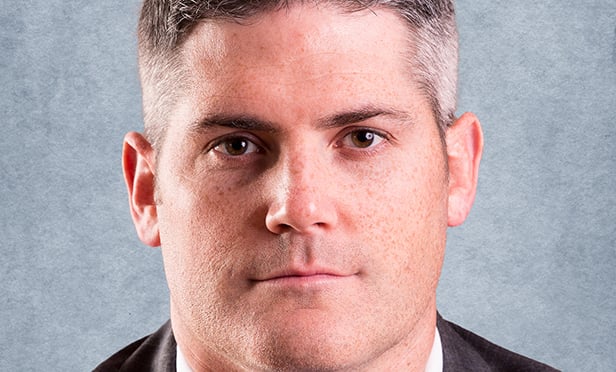IRVINE, CA—The turbulent markets in China, Russia and Greece might seem far removed for a retail investor, but that isn't the case, says Rick Chichester, president and CEO of Faris Lee Investments. As he sees it, troubles abroad create even more of a reason to have a deeply considered investment strategy. And retail is a particularly attractive asset. GlobeSt.com joined up with Chichester to get his read on the current environment in this EXCLUSIVE interview leading up to the ICSC Western Conference & Deal Making event in San Diego.
GlobeSt.com: What are your thoughts on a global context when it comes to investment considerations?
Rick Chichester: As the economies of the world today are more integrated and connected than ever, business and investment decisions should not be made independent of a global perspective. One should first consider the influences of the global economy and then filter down to the specific national and regional economies. Globally we are in volatile times as many countries face economic challenges (China, Russia, Brazil, Greece, etc.) and the US economy is expanding, albeit at a moderate pace. In the US the cost of stabilizing our economy and positioning it for growth has not been without consequence. The Fed has increased the money supply (debt) by $3.1 trillion since 2008; its balance sheet is leveraged 77 to 1 ($56.2 billion of reserves supporting $4.3 trillion of liabilities) as opposed to 2008 leverage of 22 to 1. Core inflation is 1.2% and unemployment/under employment/part time employment still is not producing the employment levels necessary for a stable and balanced consumer-based economy. It has been estimated that when considering the aggregate unemployment/underemployment, the real rate of unemployment is closer to 22%. The Fed's interventions were important, but debt cannot continue to be used to artificially grow our economy locally or internationally. We need to get back to a historically normal base rate, as much as the international markets might encourage us against this course.
GlobeSt.com: What should an investor consider specific to commercial real estate decisions?
Chichester: The current low interest rate environment is potentially influencing investors to consider too much risk in their efforts to secure yields on their investments. In a robust and competitive market, investment discipline is more critical than ever and all aspects need to be considered. However, there are multiple factors that bode well for real estate as an asset class: limited new development, strengthening tenant demand, expanding consumer demand, demographic shifts, the influence of the Millennials, and accommodating capital markets. As such, a well-constructed investment strategy, coupled with skilled operations can provide stable and predictable yields and can overcome near-term volatility.
GlobeSt.com: Why choose retail?
Chichester: Within commercial real estate “product types,” retail is particularly intriguing because it represents the largest economic influence of our economy: the consumer. Retail and the retailer are constantly being challenged and re-defined to meet the ever changing needs and demands of the buying population. The retail sector leads in human behavior and customer experience. It has fostered breakthroughs in technology, combining the innovations of the internet with the showrooming of bricks and mortar. It has developed the sophistication of supply chain management and logistics, and it leads in customer data, analytics and econometrics. Keeping pace with these realities is challenging, yet it keeps the industry vibrant and the asset class relevant and dynamic.
GlobeSt.com: Can you discus some trends affecting retail?
Chichester: The major macro factors affecting retail are technology and the continuing evolution of the omni-channel consumer experience; meeting the needs of the two largest demographic groups, the Millennials and the Baby Boomers; increasing consumer sophistication; and growing ethnic diversity in the US. This confluence of factors cannot be overstated in terms of economic impact. The need for the retail sector to evolve and adapt is driving a continual progression of exciting innovations.
GlobeSt.com: Retail properties have a huge range of sub-categories … could you provide an overview of those based on your point of view?
Chichester: As with all investment opportunities, in retail it is critical to match investment strategy with risk tolerance. Intelligence about the market and the property are of paramount importance in every transaction. Real estate is not a commodity and should not be analyzed or underwritten as such. My observations on various retail sub categories are as follows.
- Core continues to perform well and cap rates could possibly compress a bit more; there is more demand than supply
- Value Add is an expanded term that has become liberal in its definition, but there remains opportunity in this segment if carefully underwritten
- Unanchored Strip Centers represent an asset class that could become more mainstream and relevant as yield to risk, on a relative basis, are attractive
- STNL remains strong and the investor base continues to expand. As the segment has grown in demand, cap rates have compressed significantly and tenant underwriting has become more liberal. In general, this segment is “fully priced” and there is some risk that pricing expectations are not underwriting accurately in regards to the tenant, the lease rate and term, and the real estate. My concern is that too many are looking at this asset class simply as a bond.
- Gateway markets are stable and well-priced in the long term as these market economies are foundationally strong, affluent, and well positioned for growth
- Secondary Markets can be wise investments as long as you are investing in the fundamentals of the market and best of class real estate
- B and C Assets are beginning to see somedislocation in pricing expectations between buyer and seller—this asset segment is higher risk, and underwriting discipline is paramount.
Visit Faris Lee Investments at booth 603 in this year's ICSC Western Conference & Deal Making in San Diego.
Want to continue reading?
Become a Free ALM Digital Reader.
Once you are an ALM Digital Member, you’ll receive:
- Breaking commercial real estate news and analysis, on-site and via our newsletters and custom alerts
- Educational webcasts, white papers, and ebooks from industry thought leaders
- Critical coverage of the property casualty insurance and financial advisory markets on our other ALM sites, PropertyCasualty360 and ThinkAdvisor
Already have an account? Sign In Now
*May exclude premium content© 2025 ALM Global, LLC, All Rights Reserved. Request academic re-use from www.copyright.com. All other uses, submit a request to [email protected]. For more information visit Asset & Logo Licensing.








